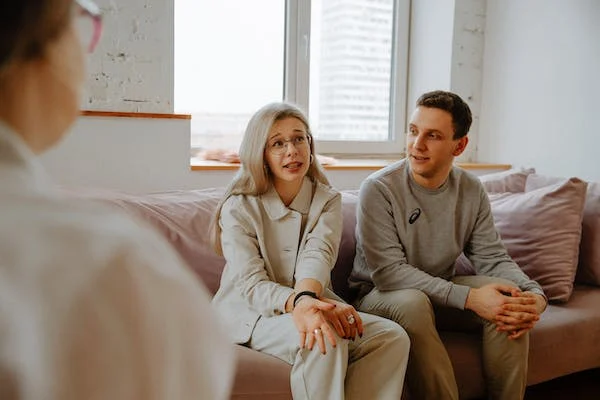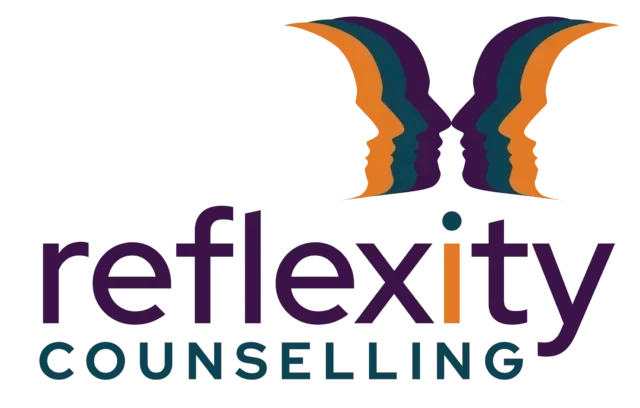Seeking counselling is a courageous step. People often seek counselling for a specific need: To solve a problem, to feel better, to gain understanding.
It’s important to acknowledge that while counselling can be immensely beneficial, it’s not a quick fix. In this blog, we’ll look why this is and shed light on the the collaborative nature of the counselling process.
The Nature of Counselling
Counselling is not about handing out solutions like a prescription. Rather, it’s a collaborative journey where you work with a trained professional to explore your thoughts, emotions, and behaviours.
Your counsellor will listen, empathise and guide you through the process to gain insights, develop coping skills, and build resilience to empower you to navigate life’s challenges.
It’s not about taking from your counsellor but more about looking inside yourself. Many people won’t have ever done this—being given answers may be their default. The process of counselling helps you to examine yourself and developing an understanding of yourself. This will enable you to gain an understanding of where change can happen.
It is basically a 1-1 conversation but there may be moments of quiet reflection; reflecting on thoughts, feelings and experiences may be new and may feel uncomfortable. This will be a new type of relationship unlike any other however, you can also use this relationship to reflect on how you are within other relationships.
Complexity of Issues
Many problems people face are multifaceted and deeply ingrained. Whether it’s dealing with trauma, managing chronic emotional difficulties, or healing from past wounds, these challenges take time to address and require a gradual process.
Your counsellor assists you in unravelling these complexities and resolution won’t happen overnight.
It’s ok to be curious about the process, it may be difficult to sit with the discomfort or, discomfort may be your norm. What is your natural reaction to this discomfort? For example, do you push it away? What would it be like to do something different this time?
Building Trust and Rapport

Effective counselling relies on a strong therapeutic alliance between you and your counsellor. Building trust and rapport takes time. If you’re hesitant to open up initially, know that it’s okay.
Your counsellor will help to provide a safe environment. What has safety looked like for you previously? If it’s alien perhaps it’ll be hard for you to recognise a safe environment and you’ll find it hard to open up.
Personal Responsibility and Autonomy
Counsellors provide guidance and support, but the ultimate responsibility for personal growth and change rests with you. You are an active participant in your own healing journey. It’s important to continue the work between session. This will look different depending on the style of counselling.
What does taking responsibility look like for you? Is it a natural position for you? Although the process of counselling is a joint responsibility, you are the only one responsible for making changes.
Unrealistic Expectations
It’s natural to hope that counselling will immediately alleviate your distress. However, unrealistic expecting can lead to frustration and disappointment. Instead, approach counselling with curiosity and an understanding that there will be a process of growth and self-discovery.
Some people describe it as “going into unexplored rooms of your house”, or “walking through a forest”. Your counsellor will help you pick things up and explore things you’ve not looked at before. Along the journey you may discover things you weren’t expecting such as new perspectives and insights.
Limitations of Time
Counselling sessions are typically scheduled weekly or fortnightly, leaving time between sessions. Progress takes time, and change happens gradually. Consistency in attending sessions and continuing with work between sessions is key.
If you’re finding it hard to fit in counselling sessions (cancelling them because other things “come up”), this may be a sign that you’re not prioritising yourself and your wellbeing.
Depth of Exploration
The counselling process can involve delving into deep emotions and past experiences. Sometimes, issues arise that need further exploration, and this can prolong the counselling process.
It’s important you feel safe with your counsellor and that you discuss these matters at your own pace.
External Factors
Life doesn’t pause during counselling. External factors such as work, relationships, and unexpected events can impact your progress.
No one can can control or change external circumstances but it’s important to acknowledge their impact on the work.
Those around you may notice that you change, they may find it hard. For example, if you’re becoming more assertive or carving out “self care time” this may not align with your relationship. Being comfortable with who you are, your values and living as your authentic self may be the ultimate outcome you’re looking for.
Conclusion
While your counsellor is a valuable guide on your journey to healing, they can’t simply wave a magic wand and solve all your problems. The process is collaborative; you and your counsellor work together to understand, process, and manage the challenges you’re facing. Be patient with yourself, embrace the process, and trust that over time, you’ll develop the tools and insights needed to navigate life’s complexities with greater resilience and understanding.
If you’re interested in a collaborative process, please contact me for an initial consultation here.
